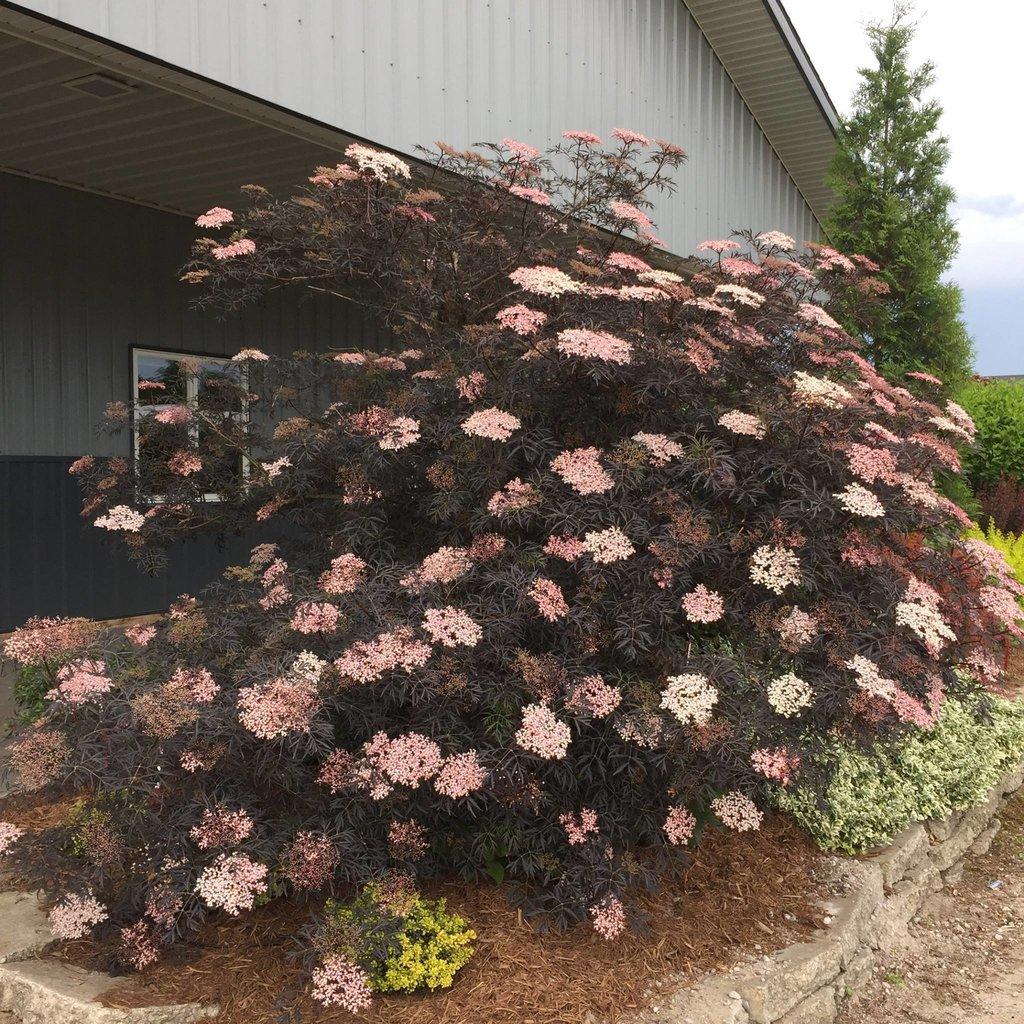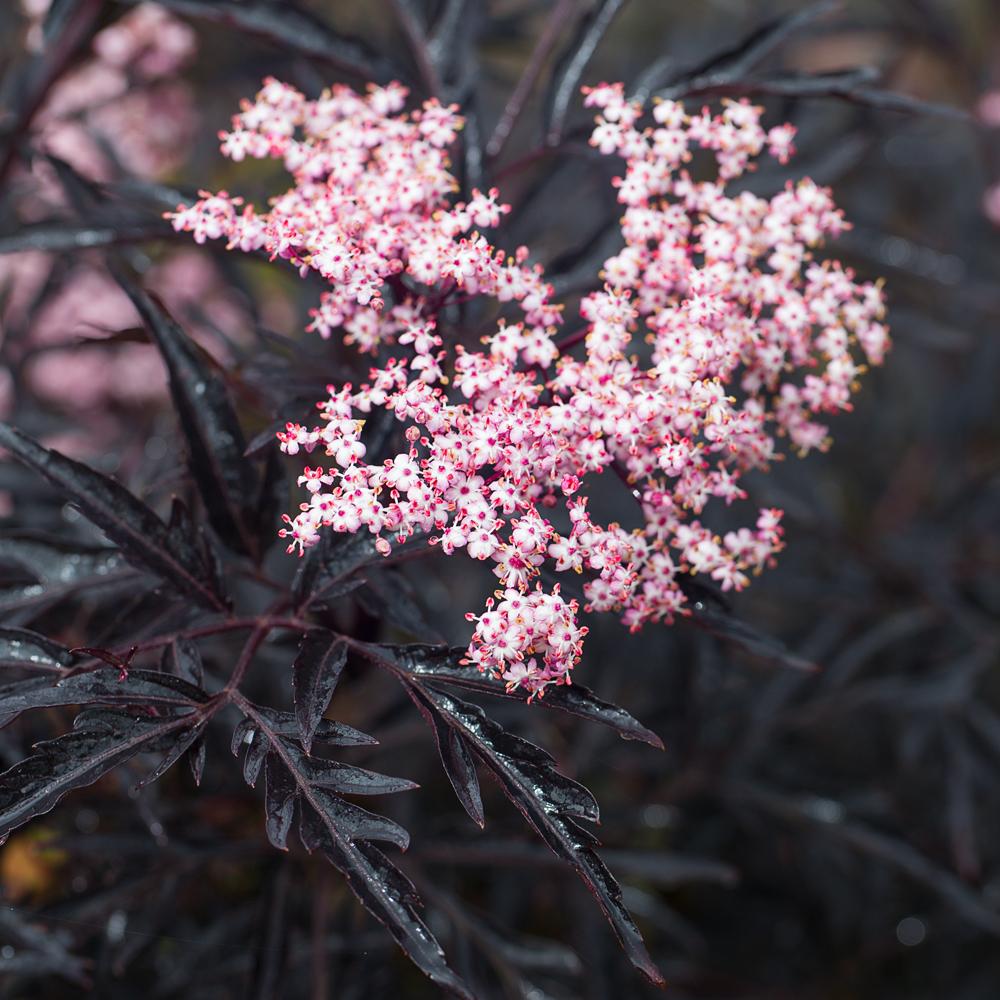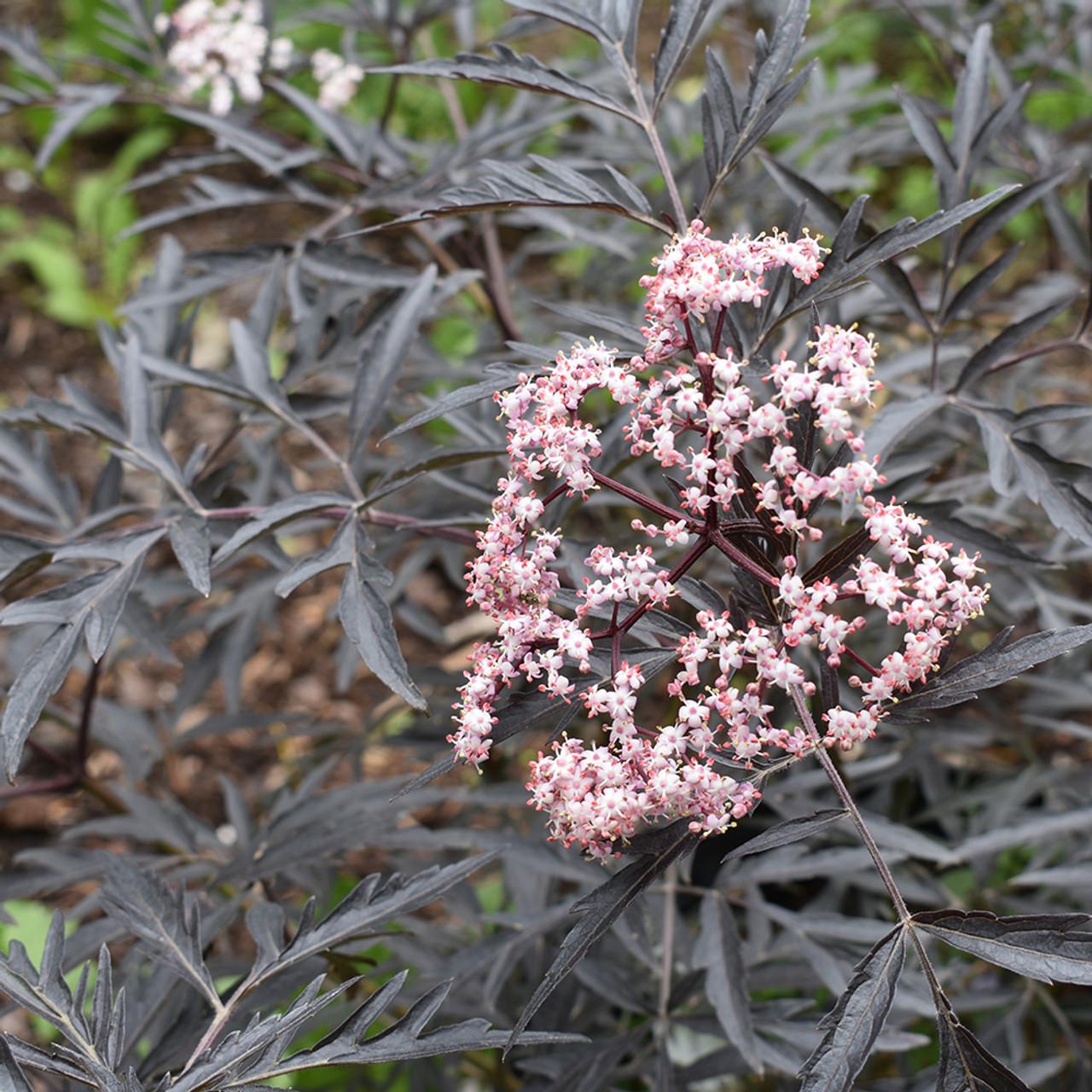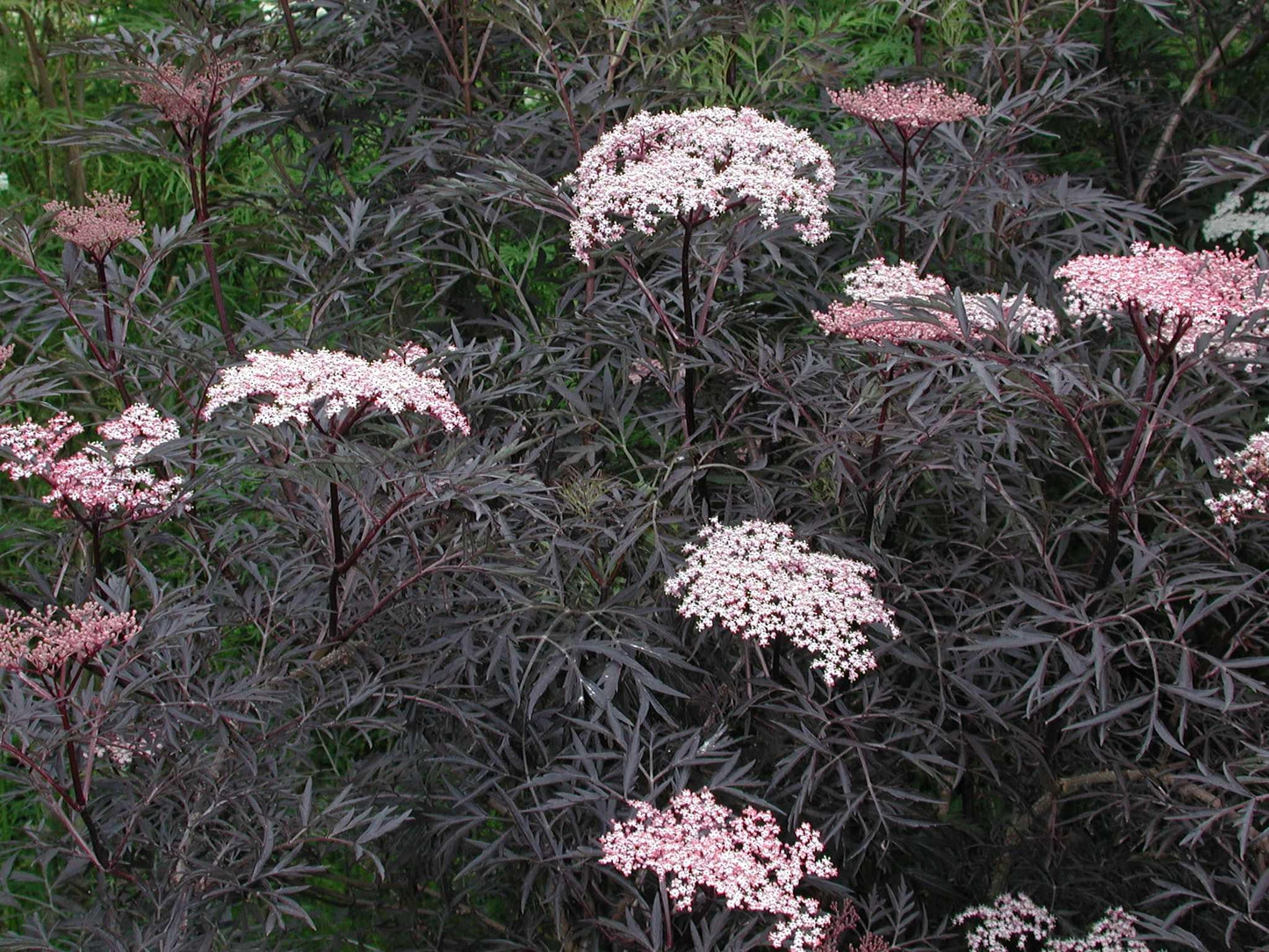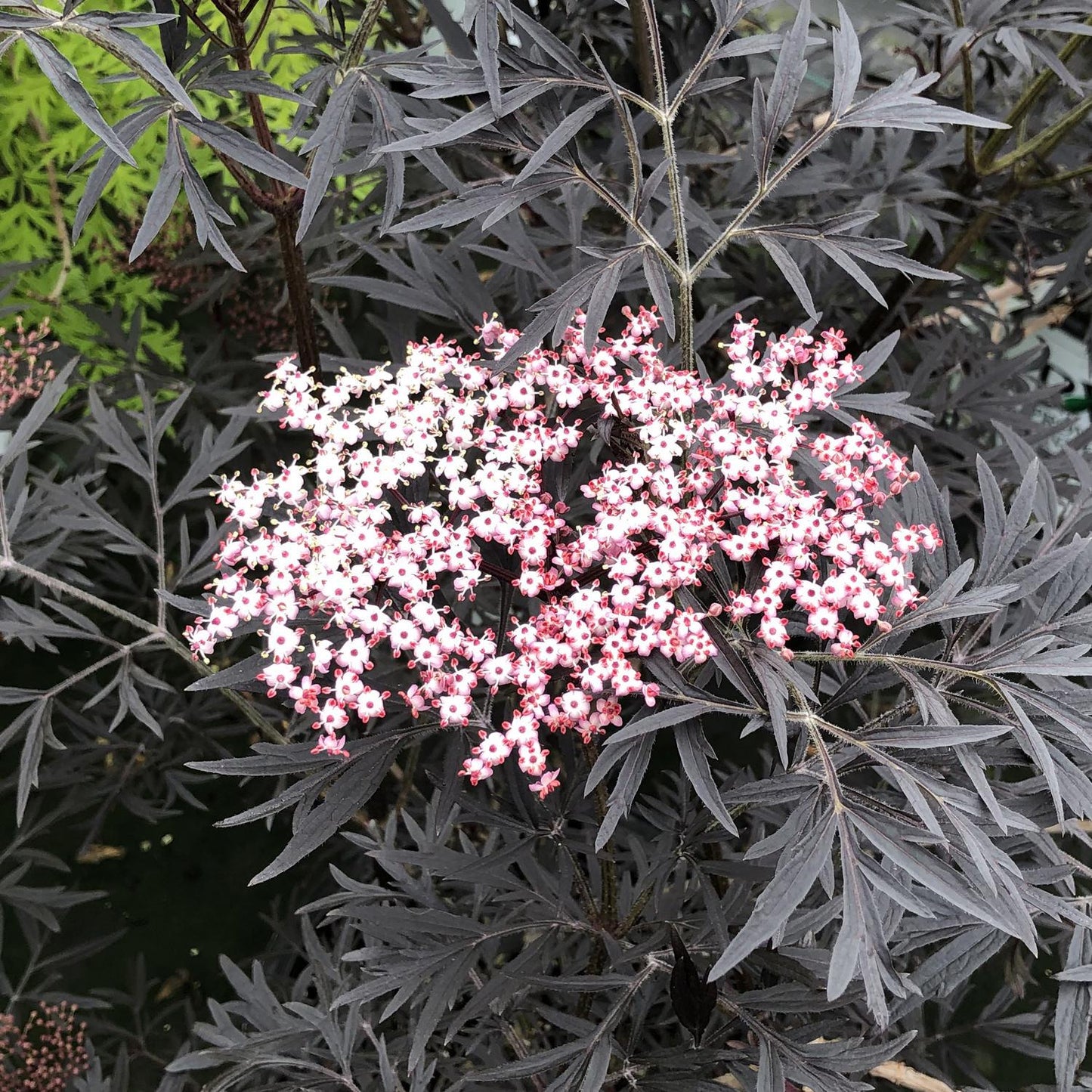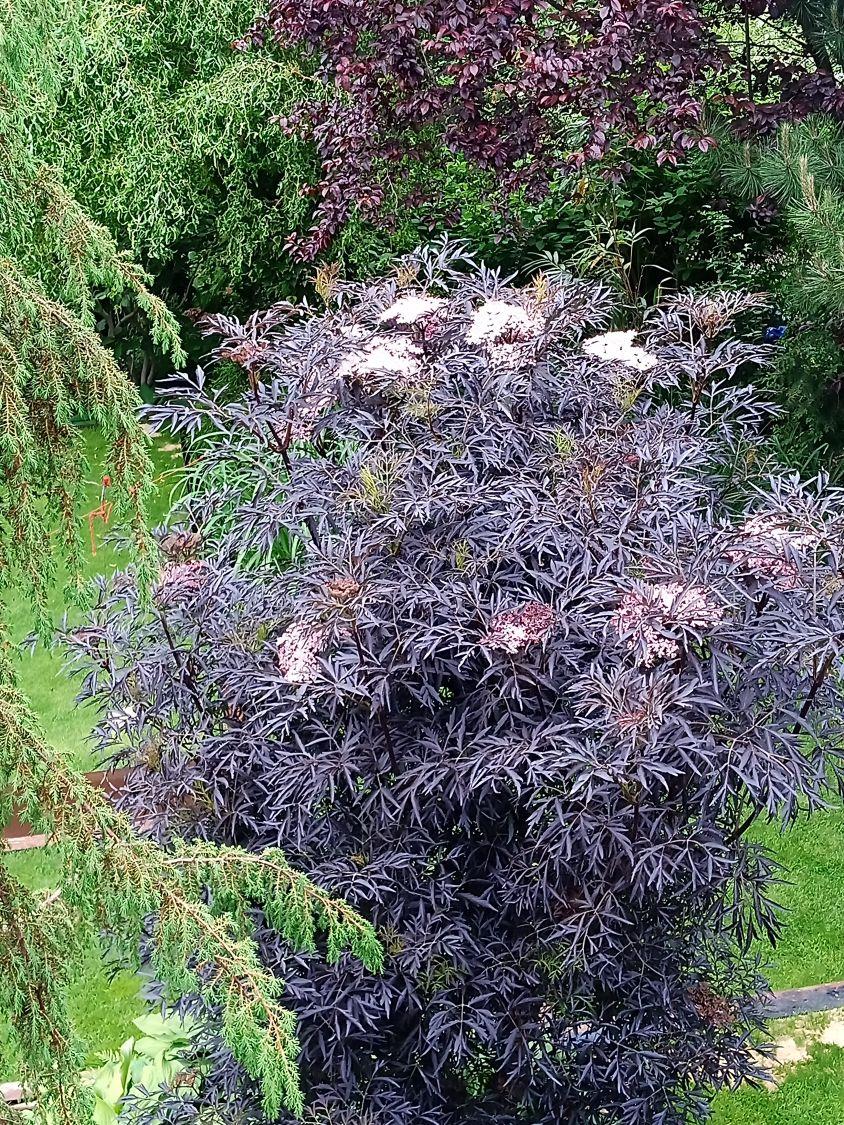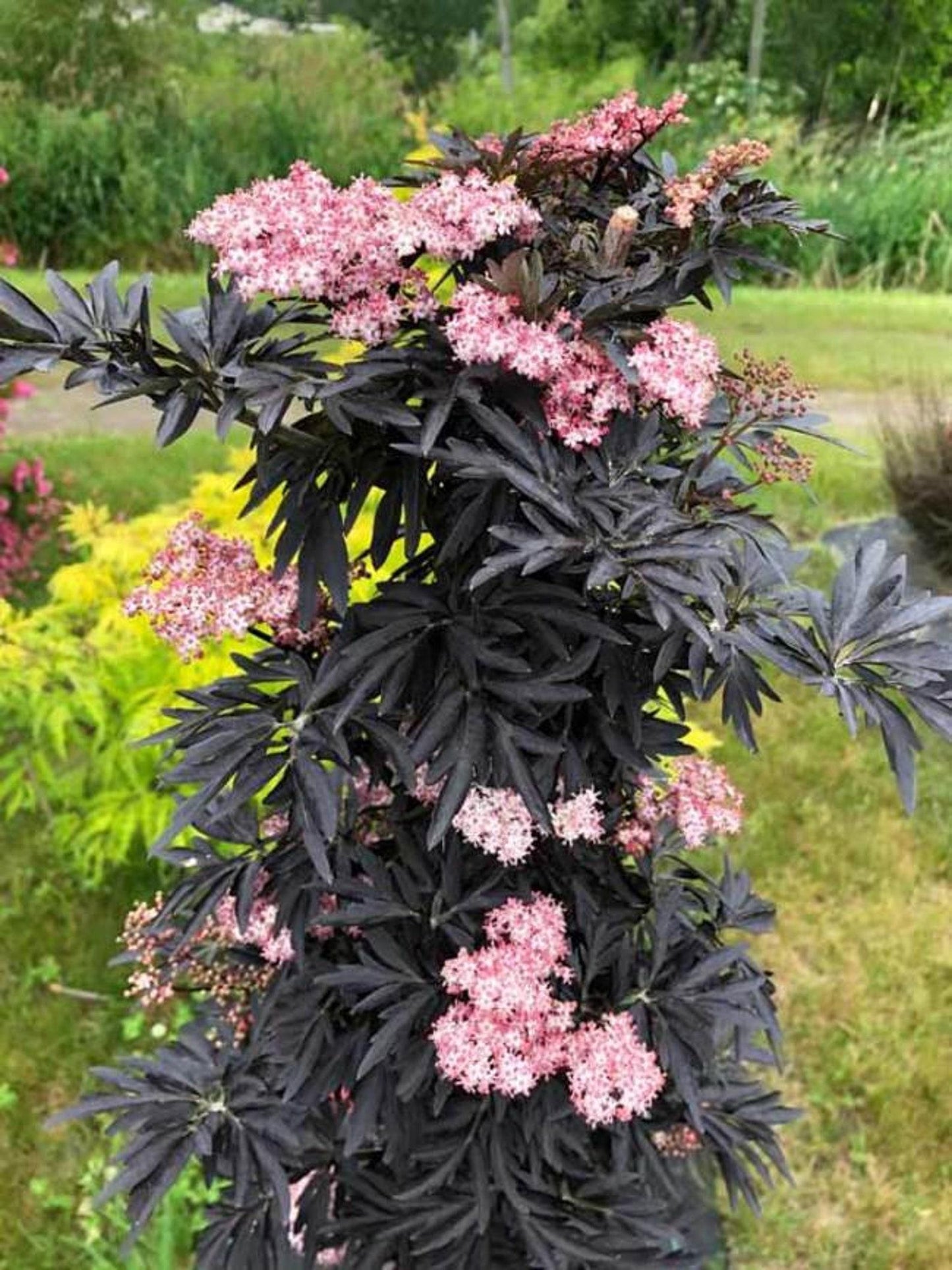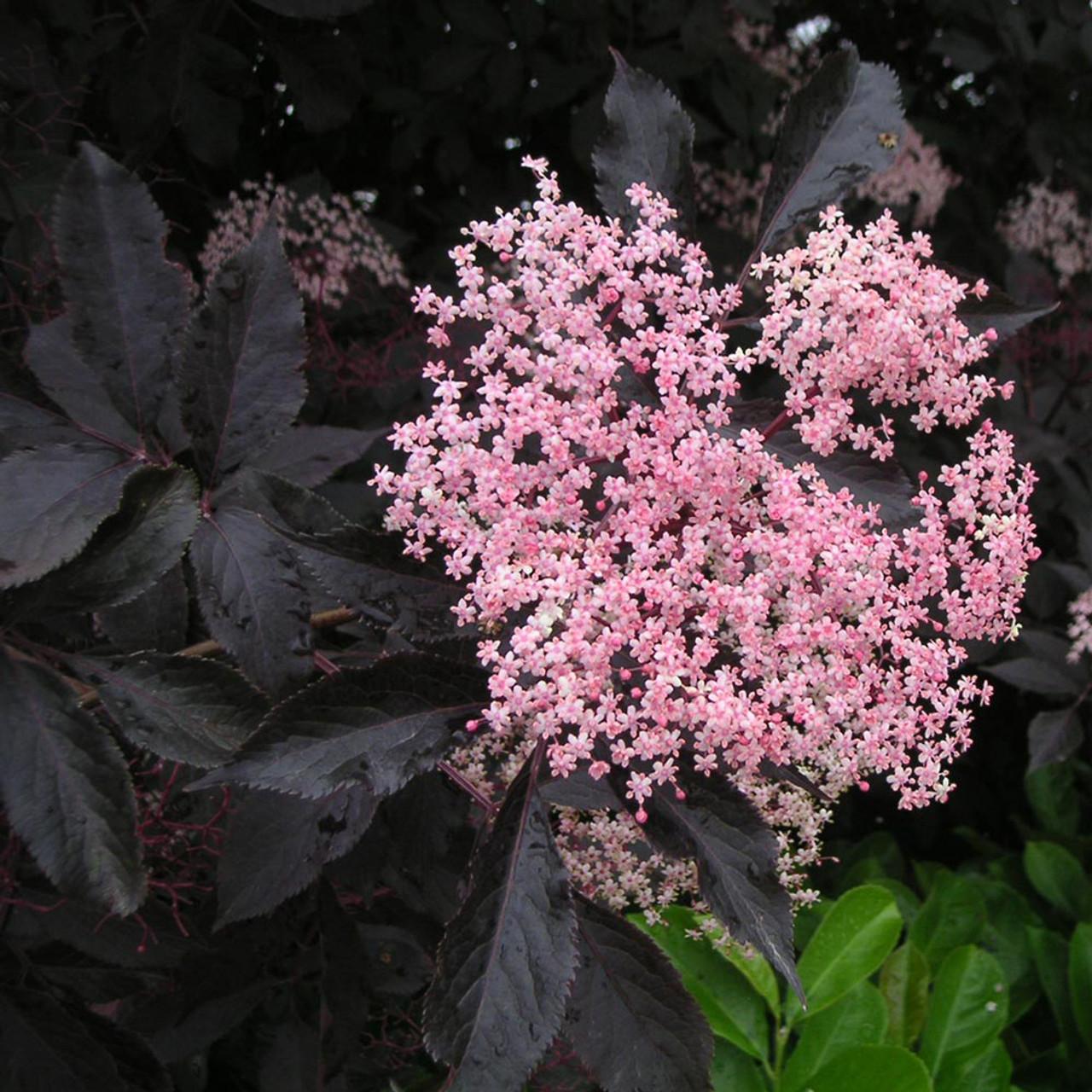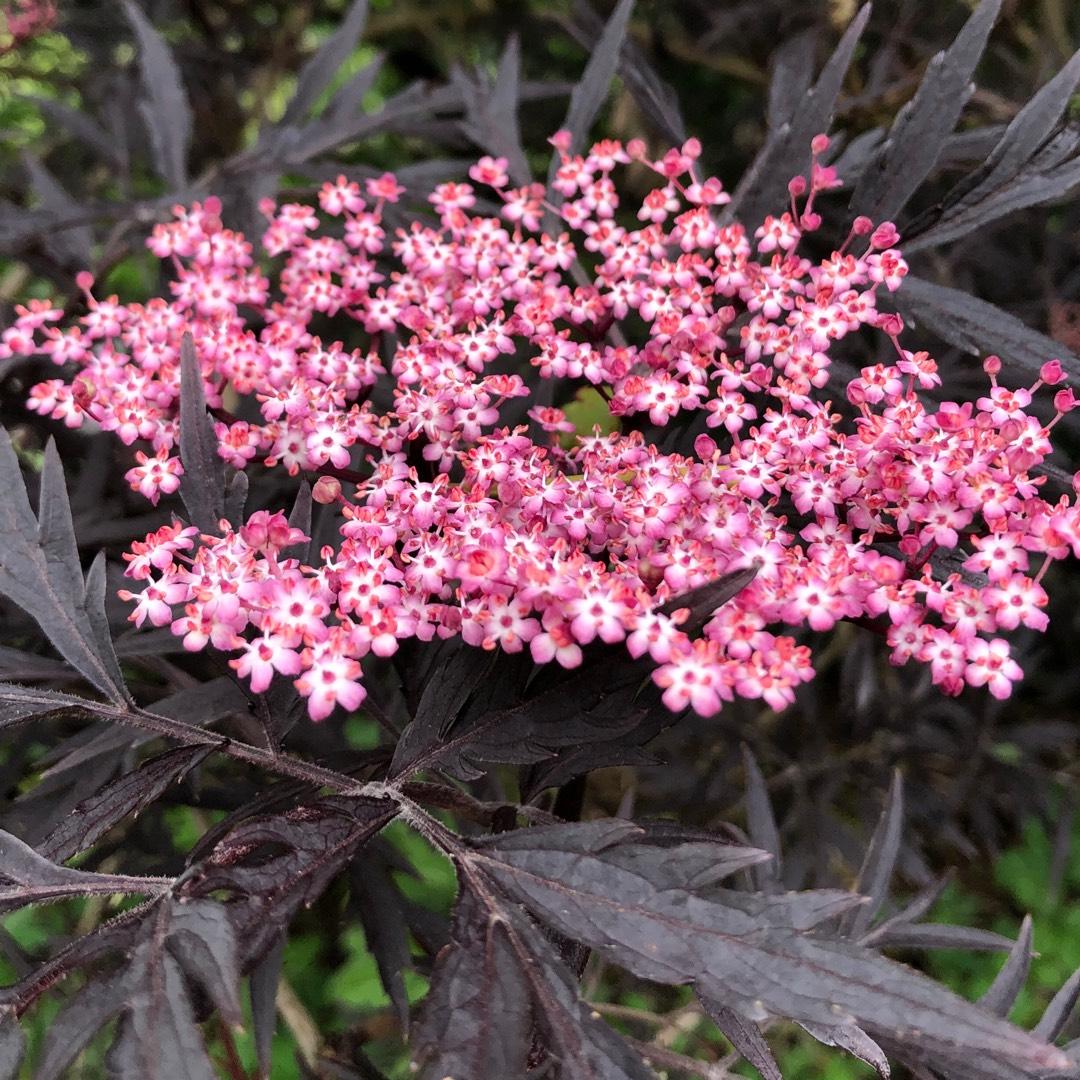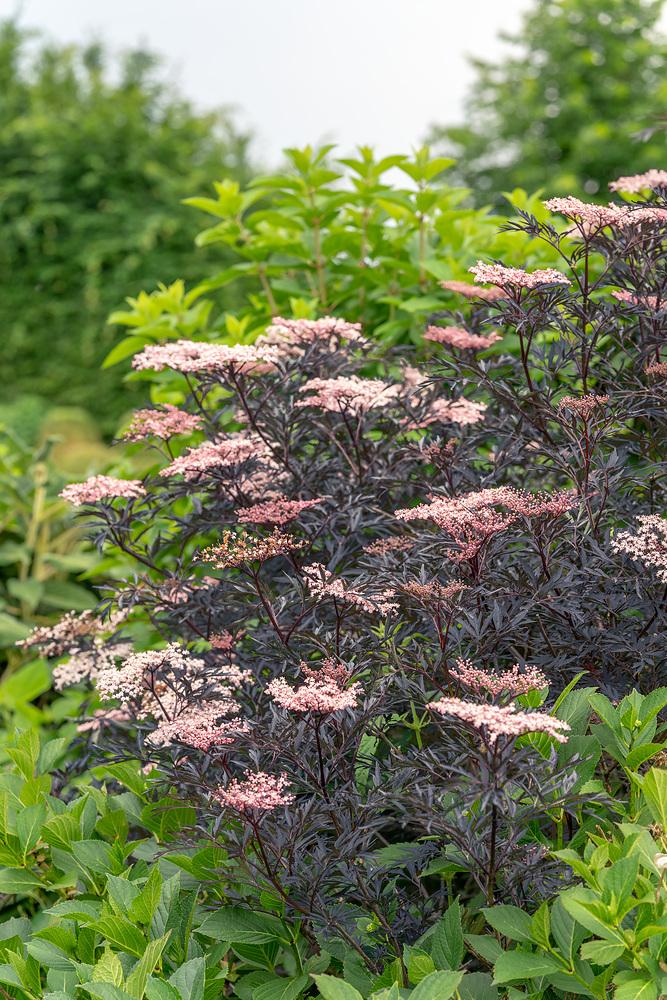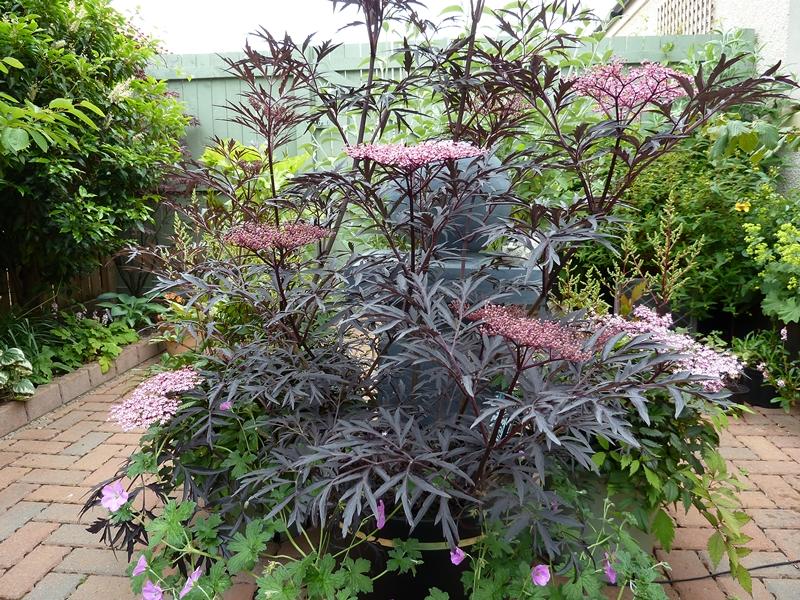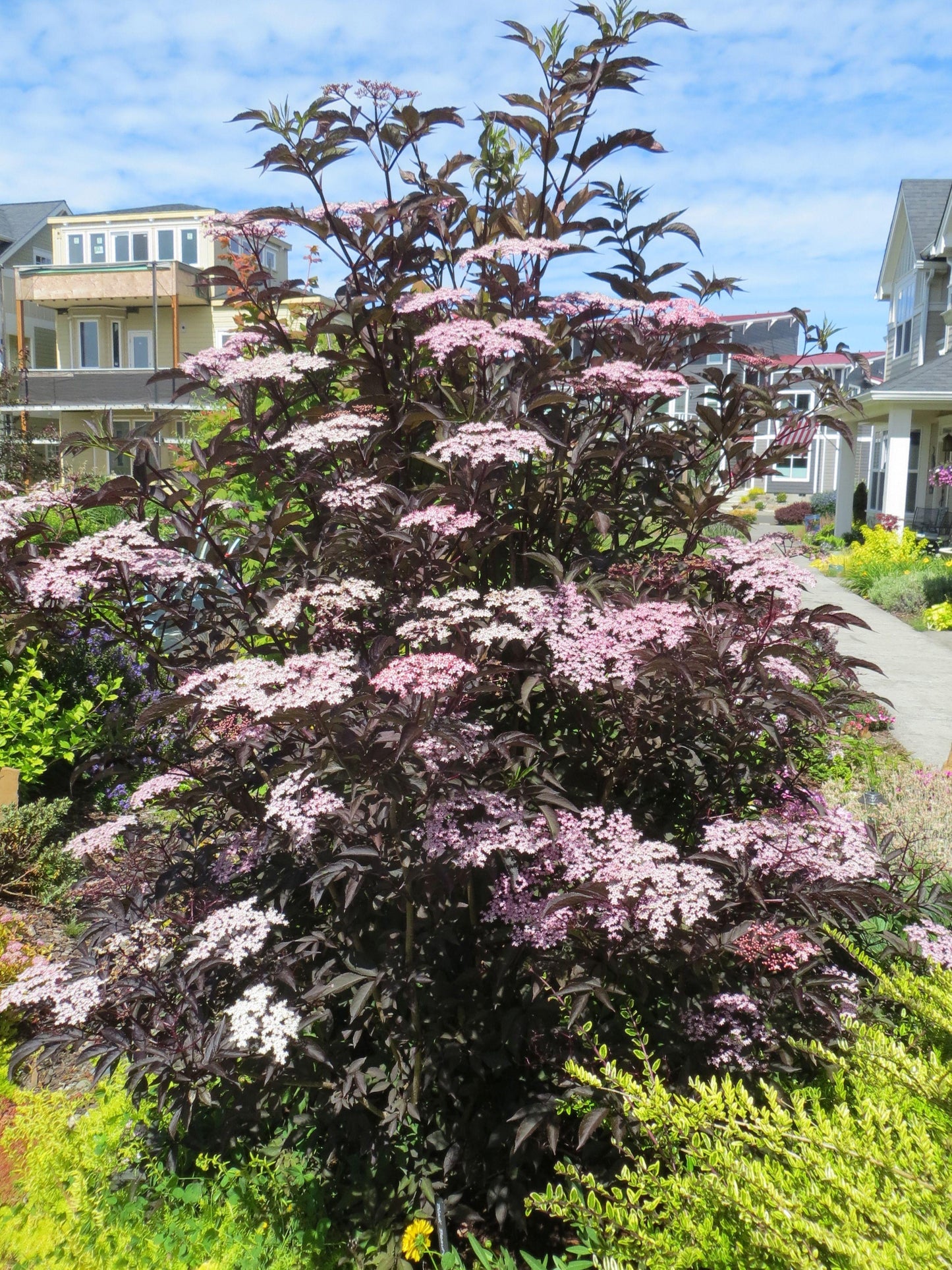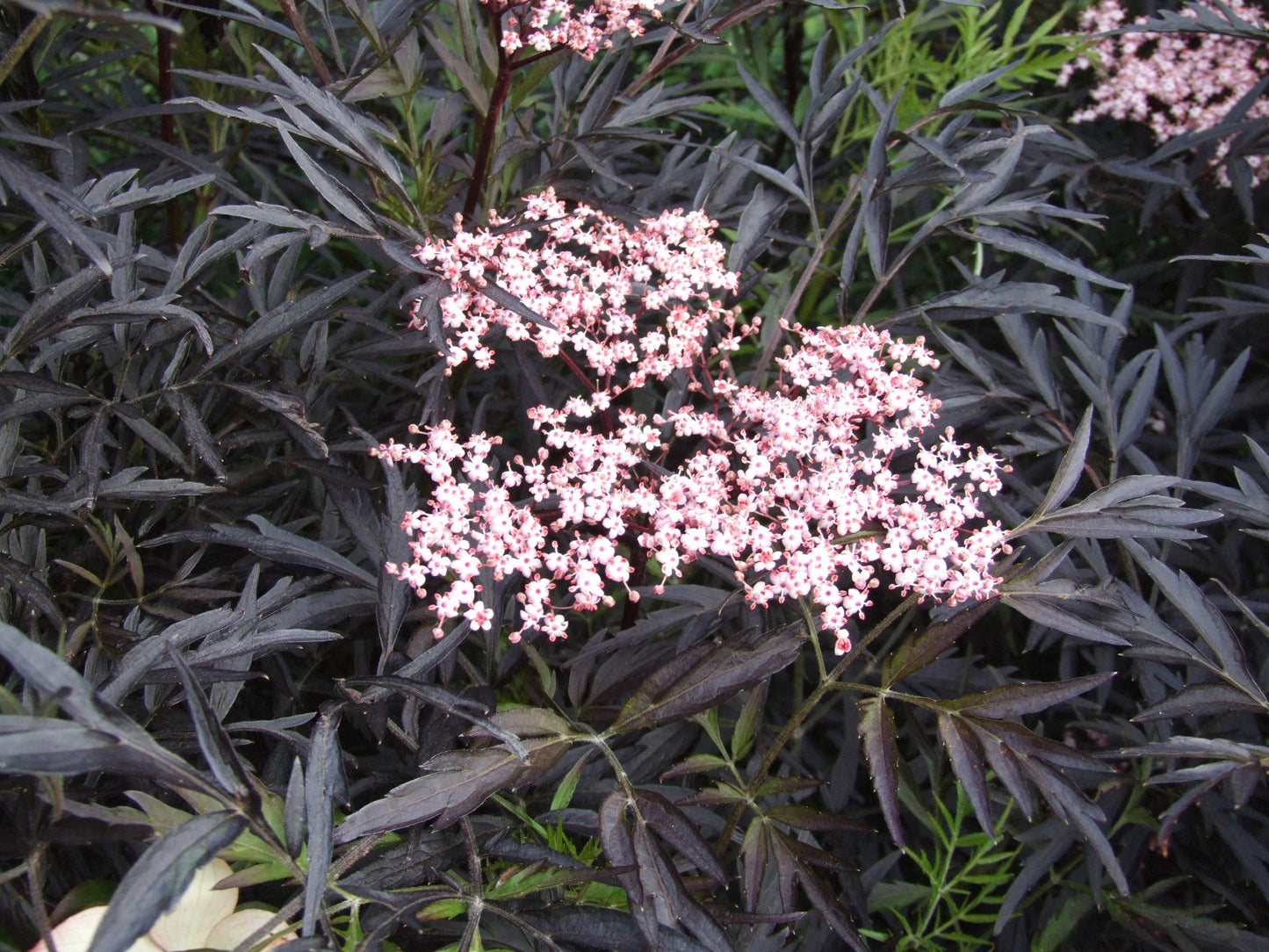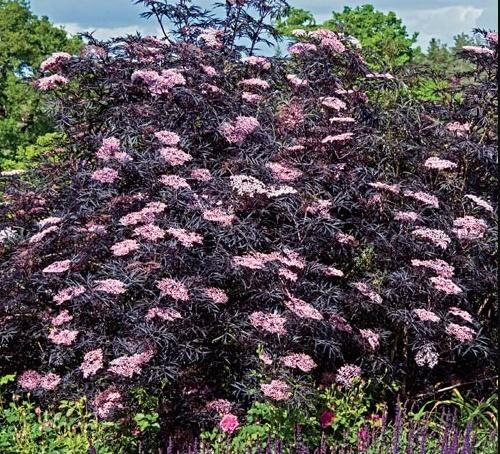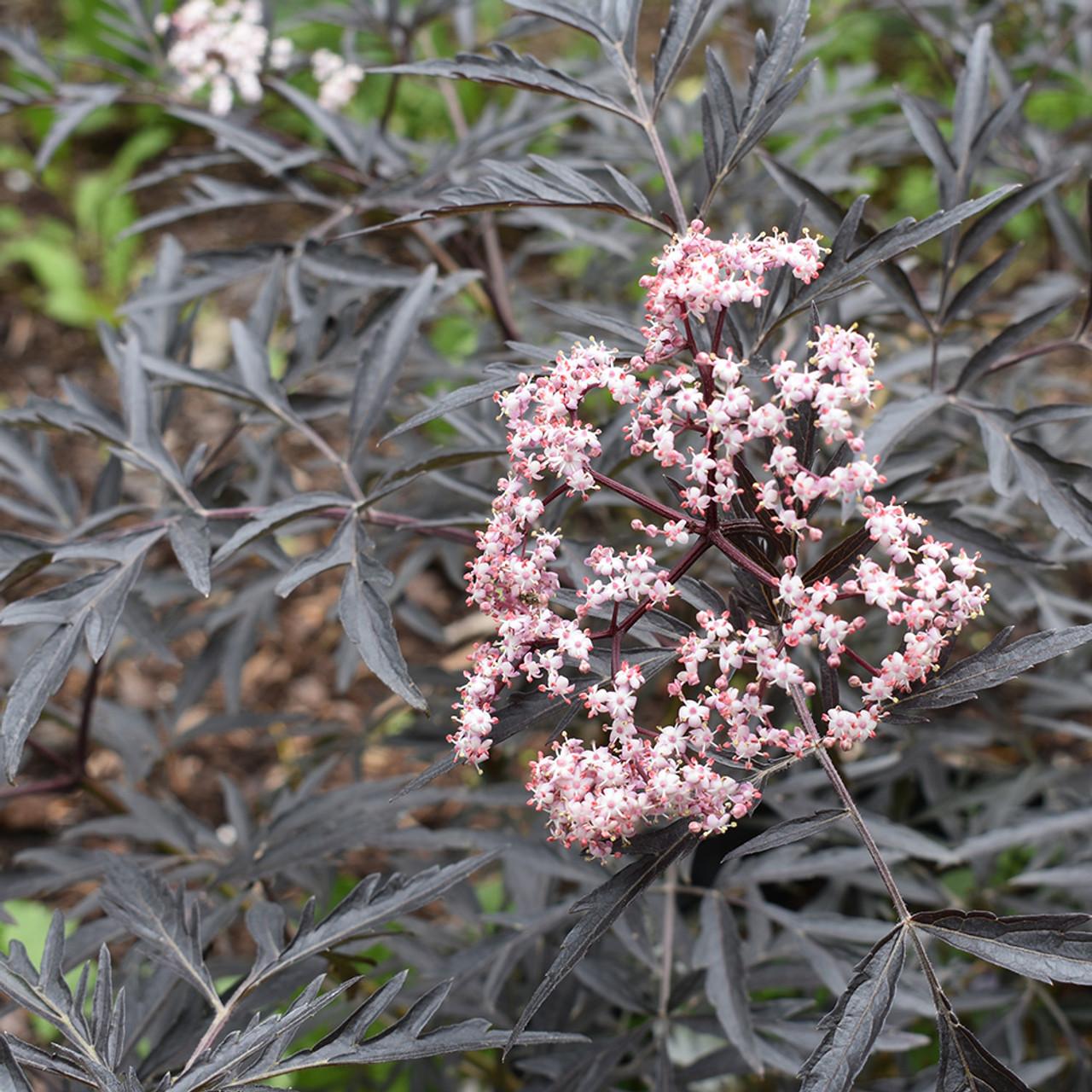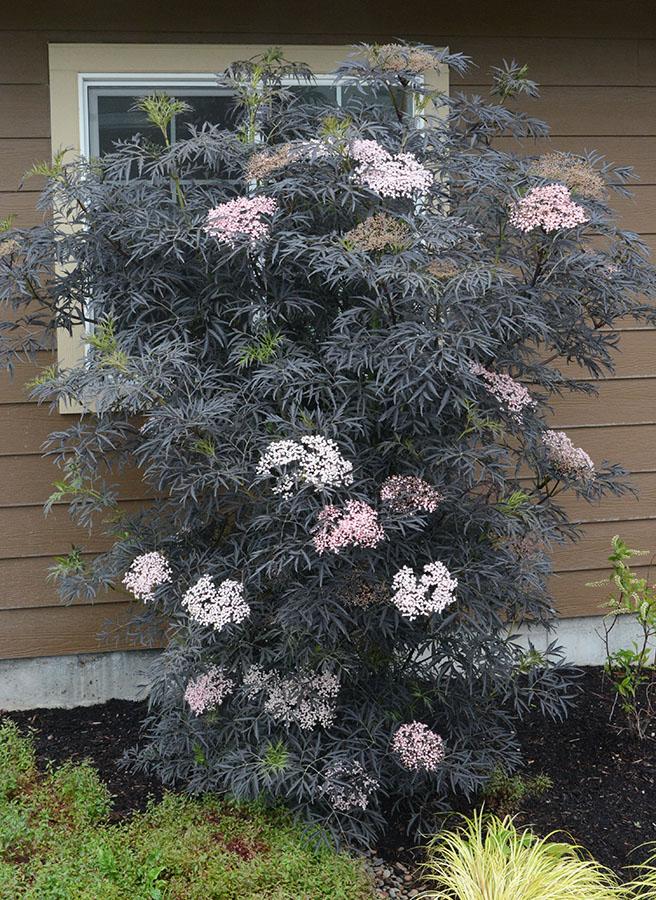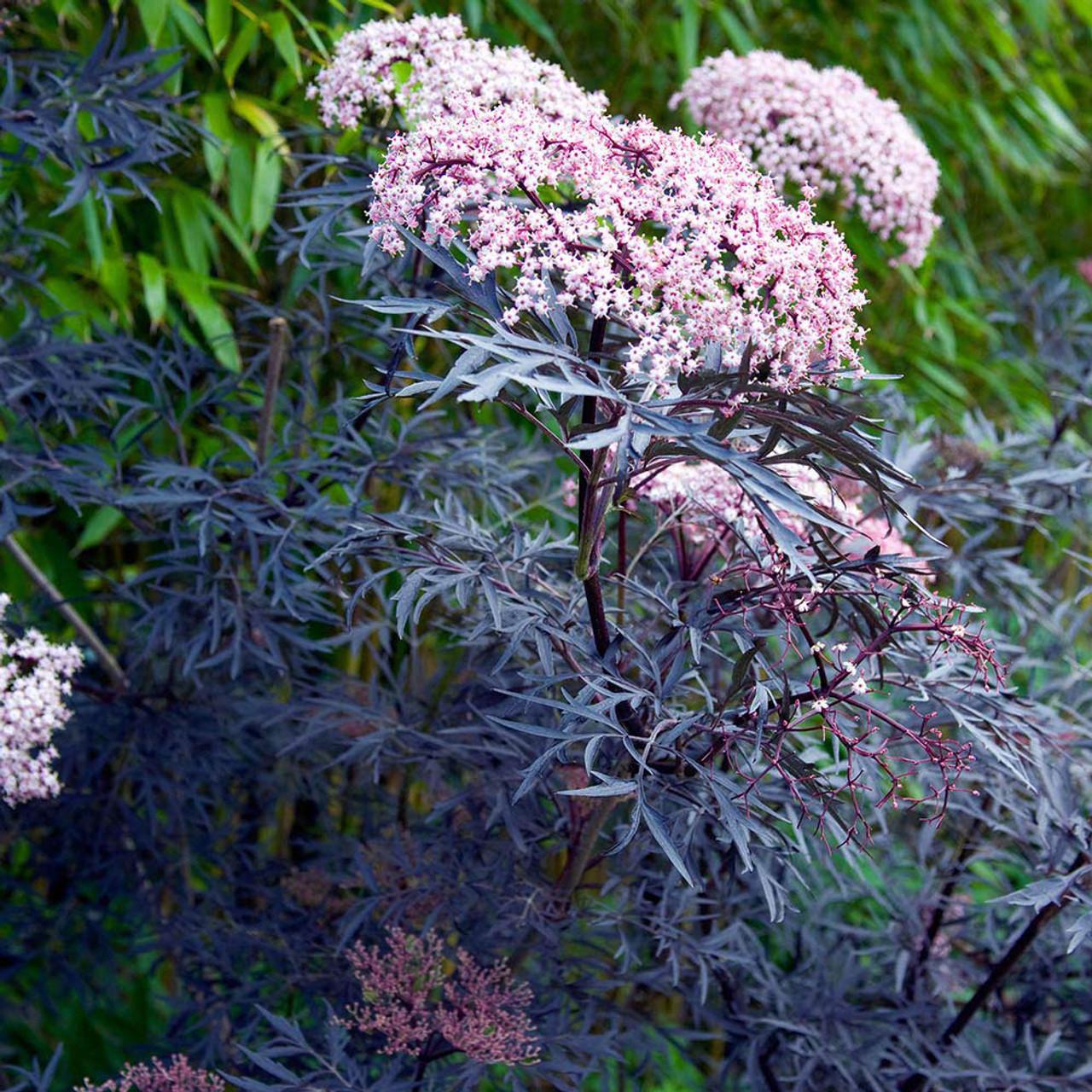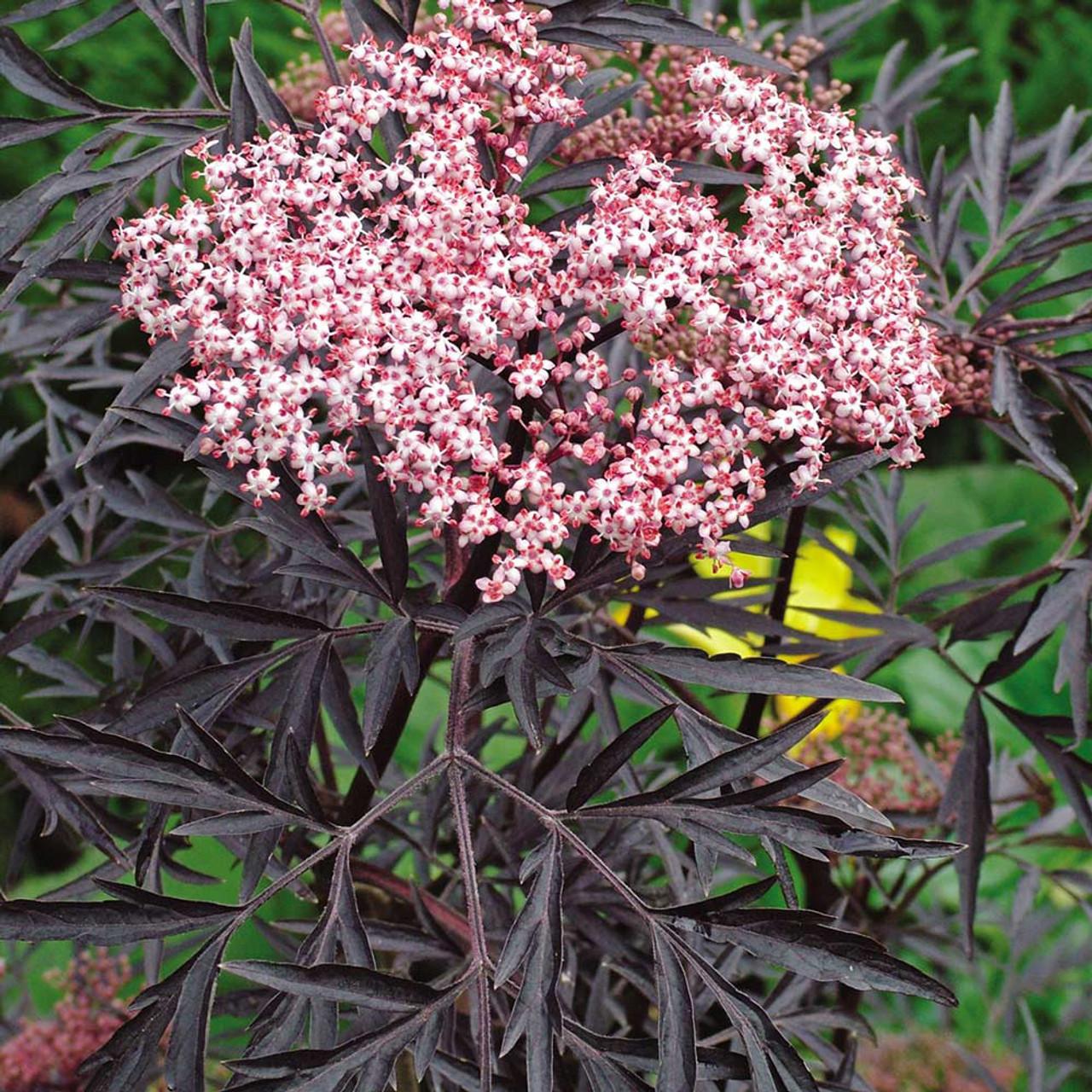1
/
of
18
Black Lace Elderberry-Sambucus nigra-Stunning deciduous shrub 10 Gallon
Black Lace Elderberry-Sambucus nigra-Stunning deciduous shrub 10 Gallon
Regular price
$480.00 USD
Regular price
$624.00 USD
Sale price
$480.00 USD
Unit price
/
per
Shipping calculated at checkout.
SKU:nsd4613-redcrocus
Couldn't load pickup availability
Sambucus nigra 'Black Lace'
Description
Sambucus nigra 'Black Lace' is a stunning deciduous shrub known for its deeply dissected, dark purple-black foliage that resembles the delicate lace of a Japanese maple. In early summer, it produces clusters of creamy pink flowers that contrast beautifully with its dark leaves, followed by small, glossy black berries in the fall.
Suggested Uses
Ideal for use as a dramatic focal point in mixed borders, as a hedge, or in large containers. Its unique foliage and flowers make it a standout in any garden setting.
Plant Details
-
 Botanical Name: Sambucus nigra 'Black Lace'
Botanical Name: Sambucus nigra 'Black Lace' -
 Common Name: Black Lace' Black Elderberry
Common Name: Black Lace' Black Elderberry -
 Size & Growth: 6-8 feet tall and wide
Size & Growth: 6-8 feet tall and wide -
 Hardiness Zones: 4-7
Hardiness Zones: 4-7 -
 Foliage Type: Deciduous
Foliage Type: Deciduous -
 Bloom Time: Early summer
Bloom Time: Early summer -
 Growth Rate: Moderate
Growth Rate: Moderate -
 Light Requirements: Full sun to partial shade
Light Requirements: Full sun to partial shade -
 Attracts Pollinators: Yes, bees and butterflies
Attracts Pollinators: Yes, bees and butterflies -
 Indoor Friendly: No
Indoor Friendly: No -
 Container Friendly: Yes
Container Friendly: Yes -
 Deer Resistant: Yes
Deer Resistant: Yes -
 Pet Warning: Berries can be toxic if ingested
Pet Warning: Berries can be toxic if ingested -
 Fragrant: Yes, flowers have a light fragrance
Fragrant: Yes, flowers have a light fragrance -
 Cut Flower: Yes
Cut Flower: Yes -
 Grows Well With: Hydrangeas, roses, and ornamental grasses
Grows Well With: Hydrangeas, roses, and ornamental grasses
Care Tips
-
 Planting Instructions: Plant in spring or fall, ensuring the root ball is level with the soil surface.
Planting Instructions: Plant in spring or fall, ensuring the root ball is level with the soil surface. -
 Soil Moisture: Prefers moist, well-drained soil
Soil Moisture: Prefers moist, well-drained soil -
 Soil Type: Adaptable to various soil types, including clay and loam
Soil Type: Adaptable to various soil types, including clay and loam -
 Humidity: Tolerates average humidity levels
Humidity: Tolerates average humidity levels -
 Pruning Instructions: Prune in late winter or early spring to maintain shape and remove dead wood
Pruning Instructions: Prune in late winter or early spring to maintain shape and remove dead wood -
 Winter Care: Mulch base to protect roots in colder climates
Winter Care: Mulch base to protect roots in colder climates -
 Planting Depth: Same depth as nursery pot
Planting Depth: Same depth as nursery pot -
 Fertilization: Fertilize in early spring with a balanced fertilizer
Fertilization: Fertilize in early spring with a balanced fertilizer -
 Special Care: Regularly check for aphids and other pests
Special Care: Regularly check for aphids and other pests
Share
